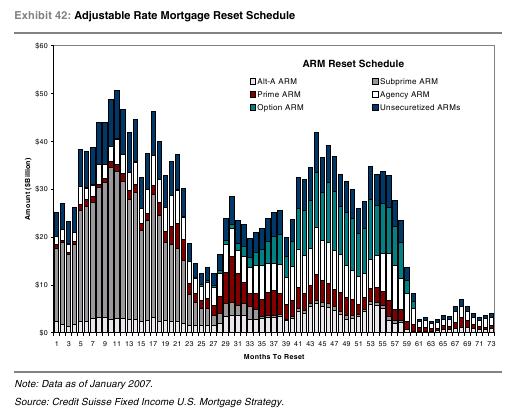Wow… This past week has been full of exciting news. Some smart cookie has finally realized that maybe it would be worth revisiting the credit ratings of bond insurers. (At this point, I sincerely hope that no-one reading this is foolish enough to have given any credence to those ratings.) M-LEC, a sort of financial Superfund site, appears dead at birth, and FASB’s rule 157 will soon take effect to force more mark-to-market of dubiously-valued assets. Citigroup, just like Merrill Lynch a few weeks before, tossed its CEO and wrote down ~$11 billion in assets.
While I’d love to rant about the abomination that was M-LEC, I’m going to instead provide a quick introduction to two phrases: “counterparty default” and “acceleration event”. I think we’ll be seeing much more of them in news articles over the coming months.
Continue reading

